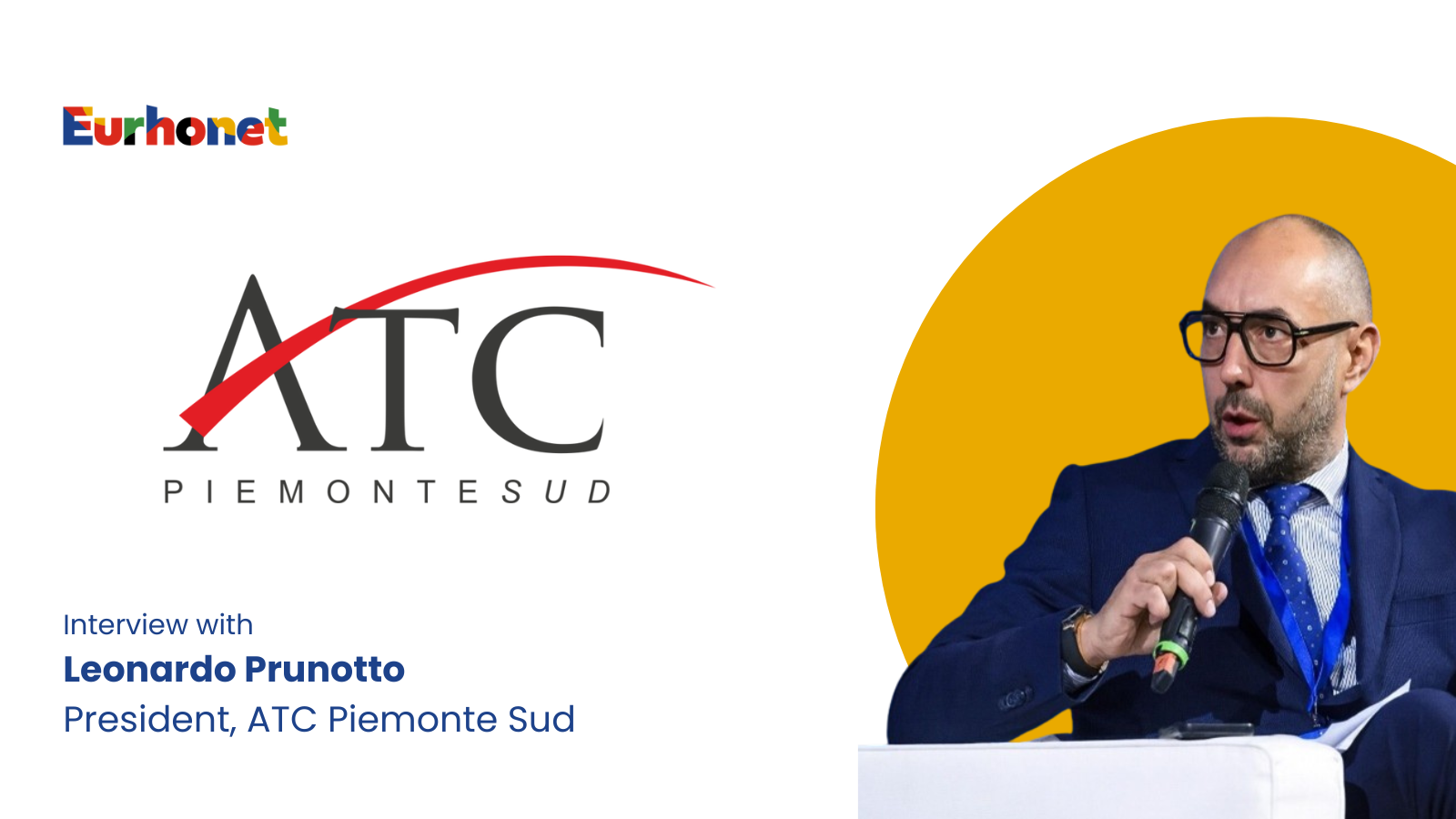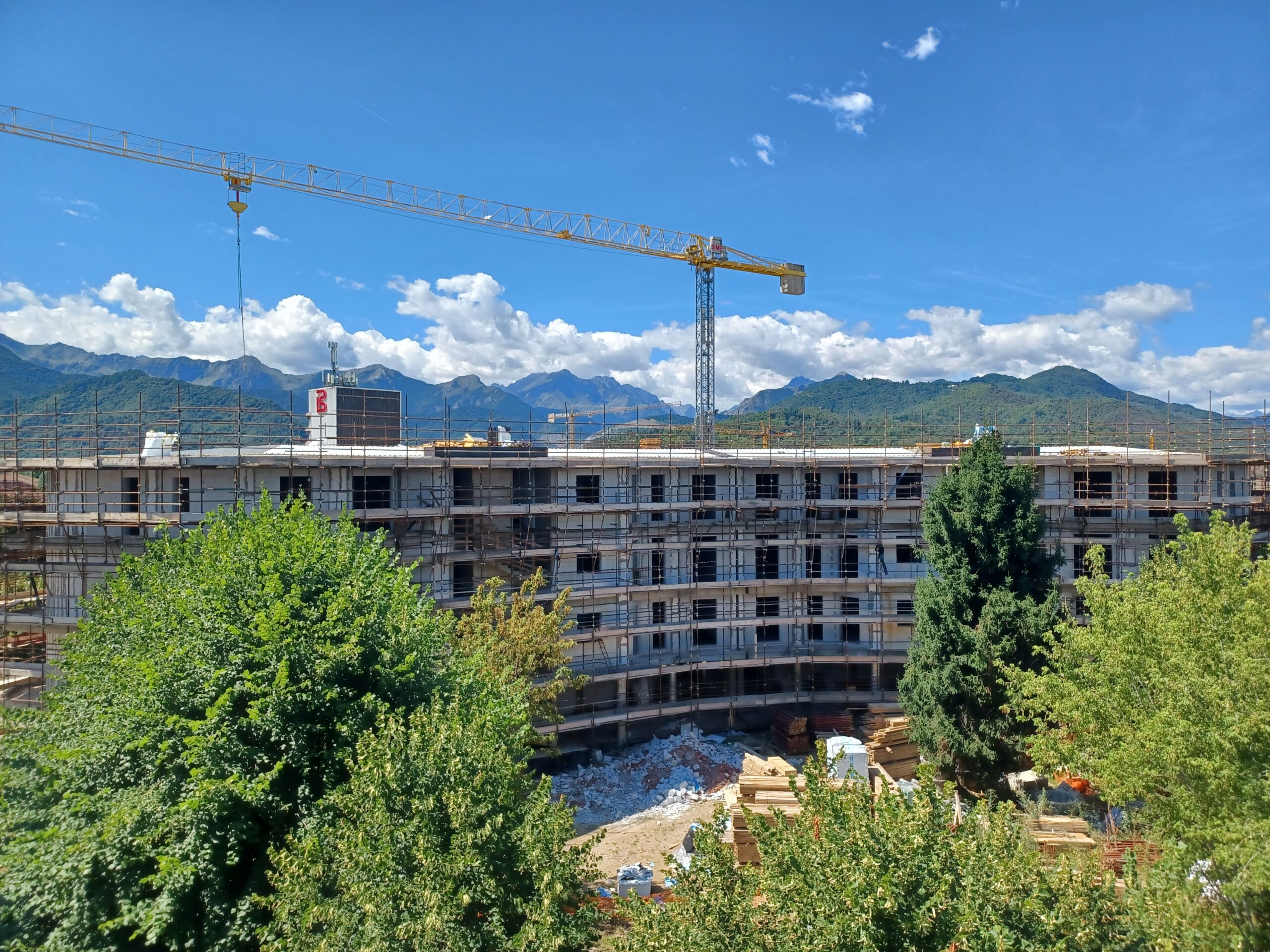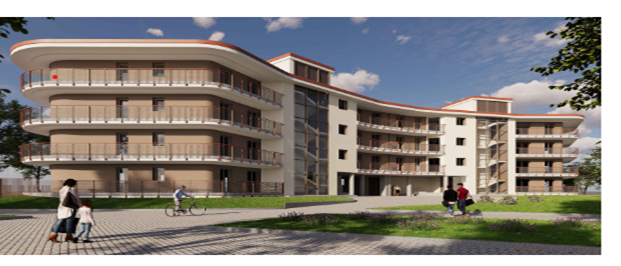We are pleased to welcome a new Italian member to the Eurhonet community: ATC Piemonte Sud. To find out more about the organisation and its goals, we spoke to its President, Leonardo Prunotto

Welcome to Eurhonet! Can you tell us a bit about your organisation?
“The Agenzia Territoriale per la Casa del Piemonte Sud (ATC) was established in 2014. It incorporated the Territorial Housing Agencies of the Provinces of Alessandria, Asti, and Cuneo, following the regional law on reorganisation. The organisation’s registered office is located in Alessandria, while two operational offices are based in Asti and Cuneo. In total, ATC employs 92 people across its three offices. Overall, the agency manages 11,448 housing units across the three provinces, including 5,515 in Alessandria, 2,030 in Asti, and 3,903 in Cuneo.
Its housing stock spans around 170 municipalities, ranging from large urban areas to small towns, and represents an essential part of the regional welfare network. Currently, ATC manages 10,313 tenants, amounting to 25,165 residents in total, including both tenants and their family members.”
What is your background and how did you come to work in public/social housing?
“I hold a degree in Political and Social Sciences and have extensive experience in both the private and public sectors. My career in local government has included several institutional roles, particularly in the municipality of Alba. I served as a municipal councillor for 13 years and, from 2019 to 2024, as part of the Mayor’s staff in the role of Chief of Cabinet. In this role, I acted as a liaison between the Mayor, the administration, and institutional bodies. I also managed relations with Ministries, public bodies, foundations, associations, and national institutes. This experience gave me a deep understanding of issues related to social housing. I also worked for about 20 years at the Banca di Asti.
In addition, I served as the sole administrator of a company in the real estate sector, where I oversaw the purchase, construction, renovation, management, and operation of properties. In the social field, I founded a non-profit sports association that organises events to raise funds for medical research. This experience gave me a deep understanding of issues related to social housing.
I also worked for about 20 years at the Banca di Asti. Furthermore, I served as the sole administrator of a company in the real estate sector, where I oversaw the purchase, construction, renovation, management, and operation of properties. In the social field, I founded a non-profit sports association that organises events to raise funds for medical research.”
What does public/social housing mean to you?
“For us at ATC, public social housing means guaranteeing the right to decent housing as a foundation for social cohesion and territorial development. It is a concrete way to build communities, not just buildings. Our approach combines sustainability, inclusion, and innovation to improve quality of life for all, starting with the most vulnerable. Public residential housing (ERP) refers to a system of subsidised rental housing designed to support individuals and families with low incomes or in economic hardship. These homes are rented at prices below market rates, following a public call and a verification process to ensure that applicants meet the legal requirements, such as income level or need status.”
What are the most rewarding and stimulating aspects of your role?
“Managing ATC allows us to address housing emergencies and ensure the right to housing for the most vulnerable groups in society. In doing so, we help improve the quality of life for many families. It is well known that our tenants increasingly come from households facing socio-economic difficulties. Around 80% belong to the so-called “socially vulnerable” categories. The best way we can support these families is through building refurbishments that meet modern standards of energy efficiency and environmental sustainability. This approach provides greater comfort and, most importantly, helps reduce energy bills, as many tenants live in precarious conditions.”
What motivates you in your role?
“My main motivation is to reduce housing hardship among disadvantaged individuals and families who cannot access the private rental market. In my role, I work in close cooperation with the Region, local municipalities, the Prefecture, local health authorities (ASL), and social services. Together, we adopt measures designed to safeguard social cohesion.”
What are your organisation’s key priorities at the moment?
“Our main priority is to operate with a focus on sustainability and urban regeneration. At the same time, we aim to draw the attention of policymakers and institutions to sustainable strategies for social housing and to secure the funding needed to achieve these goals. In recent years, construction activity has benefited from legislation that promotes the energy refurbishment of buildings. It is worth highlighting the National Recovery and Resilience Plan (PNRR), the CIPE Resolutions of 2017 and 2019, and the 110% Superbonus.
These measures have been, and continue to be, essential tools for planning and financing interventions that would otherwise not have been possible. Thanks to these funding mechanisms, ATC has implemented projects with a total investment of €80 million. These involve properties owned by the agency, municipalities, and condominiums. ATC now ranks among the top organisations in Italy in terms of Superbonus fund utilisation, which has enabled the refurbishment of nearly 2,000 housing units.”
Can you tell us about a recent project you are proud of?
“Looking ahead, it will become increasingly important to demolish obsolete buildings and rebuild without consuming additional land. One project we are particularly proud of focuses on redevelopment through the demolition of existing structures and the reconstruction of two buildings with expanded volumes. It also includes improvements to outdoor areas and fencing in the municipality of Borgo San Dalmazzo (Cuneo). The project involves 30 housing units and represents an investment of over €4 million.
It is funded through the PNRR under the programme “Safe, Green and Social: Redevelopment of Public Residential Buildings”, along with additional financing from the GSE (Energy Services Manager). The new buildings meet high energy efficiency standards and are classified as NZEB (Nearly Zero Energy Buildings).”


What are the main challenges of public/social housing in your region?
“The Piedmont Region has given a specific mandate to housing, showing a strong and ongoing commitment to this sector. Each year, it allocates around €150 million to housing initiatives. The main challenge is to keep housing assets and infrastructure in good condition so they can continue to serve their social purpose. Rising energy costs — leading to higher electricity and heating bills — together with high inflation, have increased the vulnerability of families living in public housing.
As a result, unintentional rent arrears are becoming more common and harder to manage. In 2023, the Piedmont Region strengthened its support by allocating €5 million more than the previous year (+69.4%) to the Social Housing Fund, reaching a total of €12.2 million. In 2025, it also set aside over €1.4 million from its own budget for so-called “vacant housing units”. This funding will allow ATCs across Piedmont to renovate and allocate around 100 additional homes to families within the first months of next year, helping to meet the growing demand for housing.”
Your Eurhonet membership: what motivated you to join the network?
“We strongly believe in synergies. Joining the European Housing Network will allow us to build meaningful connections and strengthen the exchange of information, ideas, and projects. It will also create new opportunities for collaboration and partnerships with other associations.”
What do you hope to gain from the network?
“The network promotes collaboration among its members and facilitates the exchange of best practices on technical, social, and management topics. It also supports the development of new solutions and provides training for staff at all levels. For our organisation, we hope this will also lead to stronger representation of members at the European institutional level. This includes cooperation with Housing Europe, aimed at taking part in EU-funded projects.”
What would you like other Eurhonet members to know about your organisation?
“Over the years, the institutional role of the Agenzia Territoriale per la Casa del Piemonte Sud has evolved. It has shifted from simply managing its own or delegated housing stock to taking on functions that safeguard social cohesion and reduce housing distress.
ATC is now a dynamic organisation focused on urban regeneration and service innovation for tenants. It promotes initiatives that prevent social segregation, foster integration, and address emerging forms of social marginalisation.”
We warmly welcome ATC Piemonte Sud to Eurhonet and look forward to fruitful collaboration ahead.





